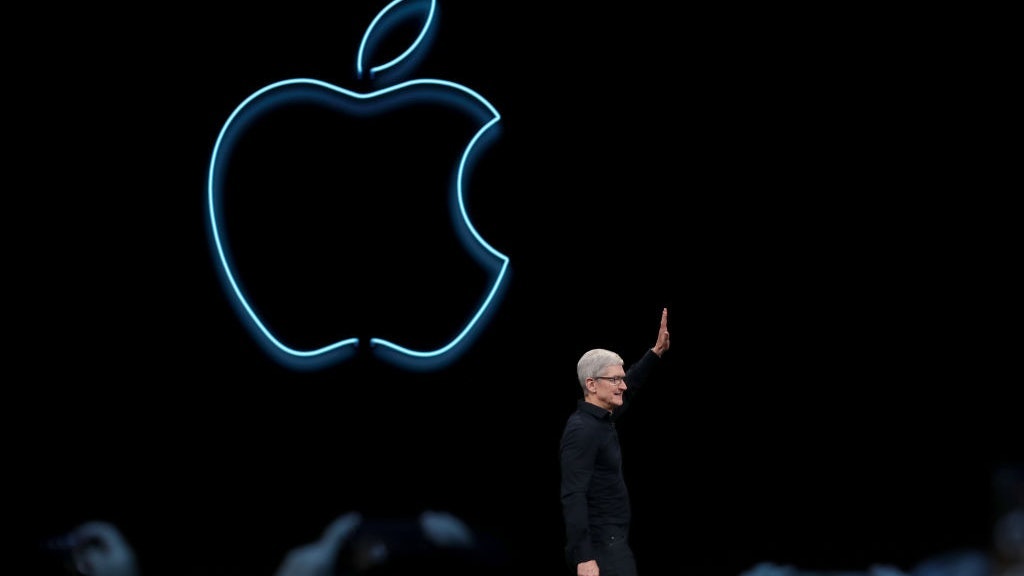01 point of view
Written by: Review Editor Room
2020-07-18 08:00
Last update date: 2020-07-18 08:00Transnational efforts to combat corporate tax avoidance have been frustrated. The Permanent Court of the European Union ruled that Apple does not need to pay 13 billion euros (about 115 billion Hong Kong dollars) in taxes to Ireland, and refers to the evidence provided by the European Commission that it cannot prove that companies have obtained illegal economic benefits from the Irish government in taxation, so it cannot explain the benefits. Subsidies for the state. It is no secret that corporate tax havens avoid tax, but this case shows the difficulty of proof. In addition, even though countries all over the world claim to cooperate to reform the tax system and plug tax loopholes, in the face of the temptation of enterprises, the road to international cooperation is still confusing.
EU Commissioner for Competition, Vestager, pointed out that the Irish government has given preferential treatment to Apple and should pay a tax of 13 billion euros. (VCG)
The EU loses enough evidence
The EU national subsidy regulations stipulate that member states shall not grant tax incentives to specific enterprises. In 2016, the European Commission ruled that Apple avoided taxation, and accused the Irish government of tailor-made preferential tax arrangements for Apple, allowing Apple to pay less than 1% of the effective tax rate of profits tax. The committee asked Apple to pay back 13 billion euros in taxes between 2003 and 2014. Apple and the Irish government refused to accept the appeal.
Ireland is an internationally recognized tax haven, with a corporate tax rate of 12.5%, which is lower than the average of European countries. Furthermore, the definition of a taxable company in Ireland was different in the early days. Even if the company is registered in Ireland, but it does not have to pay tax if it operates overseas.
Apple keeps all sales records outside of North and South America in Ireland's "head office", and profits are also transferred there. These profits are not subject to the tax regulations of any country, and not the countries where the products are actually sold. They avoid the profits tax on the sale of Apple products in the EU.
The European Union Permanent Court ruled on 15th that Apple appealed the victory. (Getty Images)
After four years, the Permanent Court of the European Union supported the European Commission’s review of the tax arrangements of member countries, but in the case of Apple, it failed to convict. The committee failed to prove that the Irish government provided special treatment, and the evidence failed to demonstrate the "necessary legal standards" that Apple’s two subsidiary companies received special economic benefits, nor could it be interpreted as a state subsidy. The court held that the evidence submitted by the European Commission should prove the income of the subsidiary in Ireland conducting the business in person (in consideration of the company's actual activities and functions, and strategic decisions other than the subsidiary, etc.). If the committee proves that the income of the subsidiary company is from the activities of the subsidiary company, the judgment result may be different.
How to talk about international cooperation in the EU
The European Commission has actively cracked down on tax avoidance in recent years, especially in the economic downturn in recent years, and has been working hard to collect taxes to help member countries finance. According to Paolo Gentiloni, Economic Commissioner for the European Commission, tax avoidance by individuals and businesses has caused the EU to collect 81 billion euros less each year, which is equivalent to 80% of the economic stimulus package that Germany intends to launch this year. For individuals and domestic companies that keep their own lives, multinational corporations such as Apple wantonly use international tax loopholes to self-fertilize, and they must feel extremely unfair and criticize the government for letting the profits out. As far as the EU is concerned, the uneven taxation system is an important factor that prevents the EU from integrating its member economies and maintaining a single market.
Apple's past subsidiary in Ireland paid profits tax to the Irish government at a very low tax rate. (Reuters)
The lawsuit failed this time, and the EU is currently unable to rely on the lawsuit to ask member countries to coordinate the taxation system. It only proposes that the member states do not provide financial support to enterprises that are connected to localities that refuse tax reform. The amount of the service transaction, so that the country collects tax from the enterprise at the domestic tax rate.
As a matter of fact, when the EU is not stable, it is more difficult to demand global coordination. Even though the Irish government changed the regulations in 2015, Apple affiliates easily left Ireland and moved to another tax haven, Jersey, where the profits tax was zero. At the same time, the Organisation for Economic Co-operation and Development is discussing the imposition of the lowest global tax rate and proposing several measures to promote domestic taxation of multinational corporations, but the United States recently suspended discussions with the OECD on global digital service tax.
Margrethe Vestager, the EU Commissioner for Competition that led the investigation of Apple’s tax avoidance case, said that he would not give up, considering the next step, and stressed that all enterprises should pay taxes fairly. Member States have preferential treatment for individual enterprises, which leads to unfair competition and lacks Public investment benefits the people.
To date, giant companies—especially technology giants—still tend to support low taxes. In addition to Apple, Facebook, Google parent company Alphabet, Uber, Amazon, etc. have registered companies in offshore companies, studied tax havens for many years, and supported the establishment of wealth Tax scholar Gabriel Zucman's new book "The Victory of Injustice and Injustice: Last Year: How to Reverse the Inequality of the Rich and the Poor?" It is mentioned that tax injustice damages democracy. The national government treats a small number of enterprises preferentially, and the public will not believe that democracy brings justice. At the national level, when the local government lowers tax rates, attracts foreign capital to move away, harms the fiscal and taxation of other countries, and triggers dissatisfaction between countries. Like Ireland and other EU member states, the practice is not decent.
The tax reform proponents proposed to collect 25% of corporate profits tax globally, which is in fact only the global average. This move will eliminate the transfer of corporate profits, and the government can invest the extra tax on people’s livelihood affairs and create common good. On the contrary, when one place only attracts foreign capital by relying on low taxes, it just says that people are welcome to come to look for bargains, reflecting that there is no strength in the localities to promote, and it is a smirk.
The EU's trillion-dollar budget summit brings back disputes between rich and poor countries?
Although distributing money can reduce poverty, it still needs long-term support
01 depth
Apple Ireland EU 01 opinion












/cloudfront-eu-central-1.images.arcpublishing.com/prisa/KMEYMJKESBAZBE4MRBAM4TGHIQ.jpg)


/cloudfront-eu-central-1.images.arcpublishing.com/prisa/EXJQILQR5QI7OMVRTERD7AEZAU.jpg)